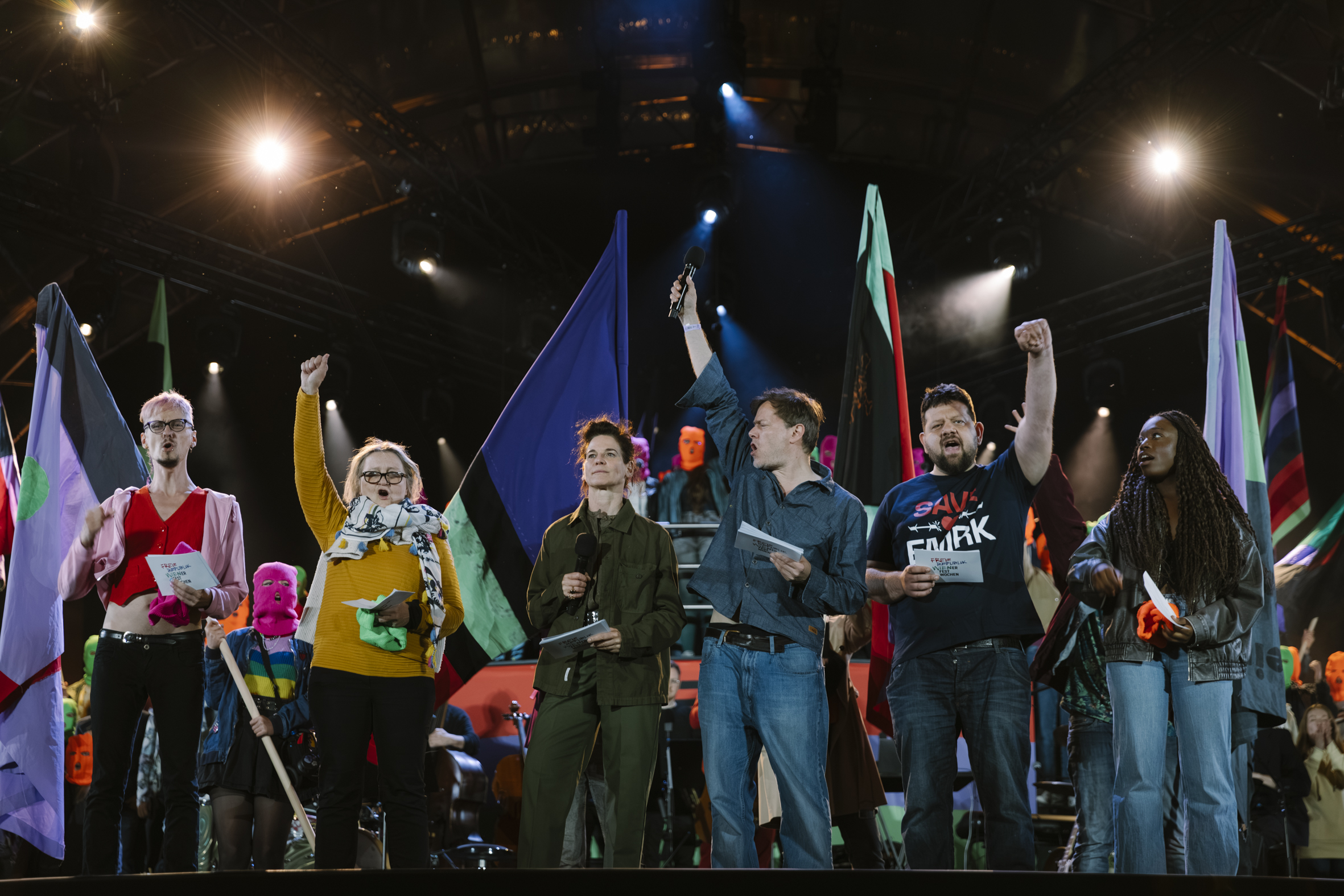
Milo Rau
Milo Rau Wants a Revolution: His International Arts Festival Reform Project at Wiener Festwochen
Photo: Inés Bacher Opening Ceremony for Wiener Festwochen 2024. Milo Rau is fourth from the left.
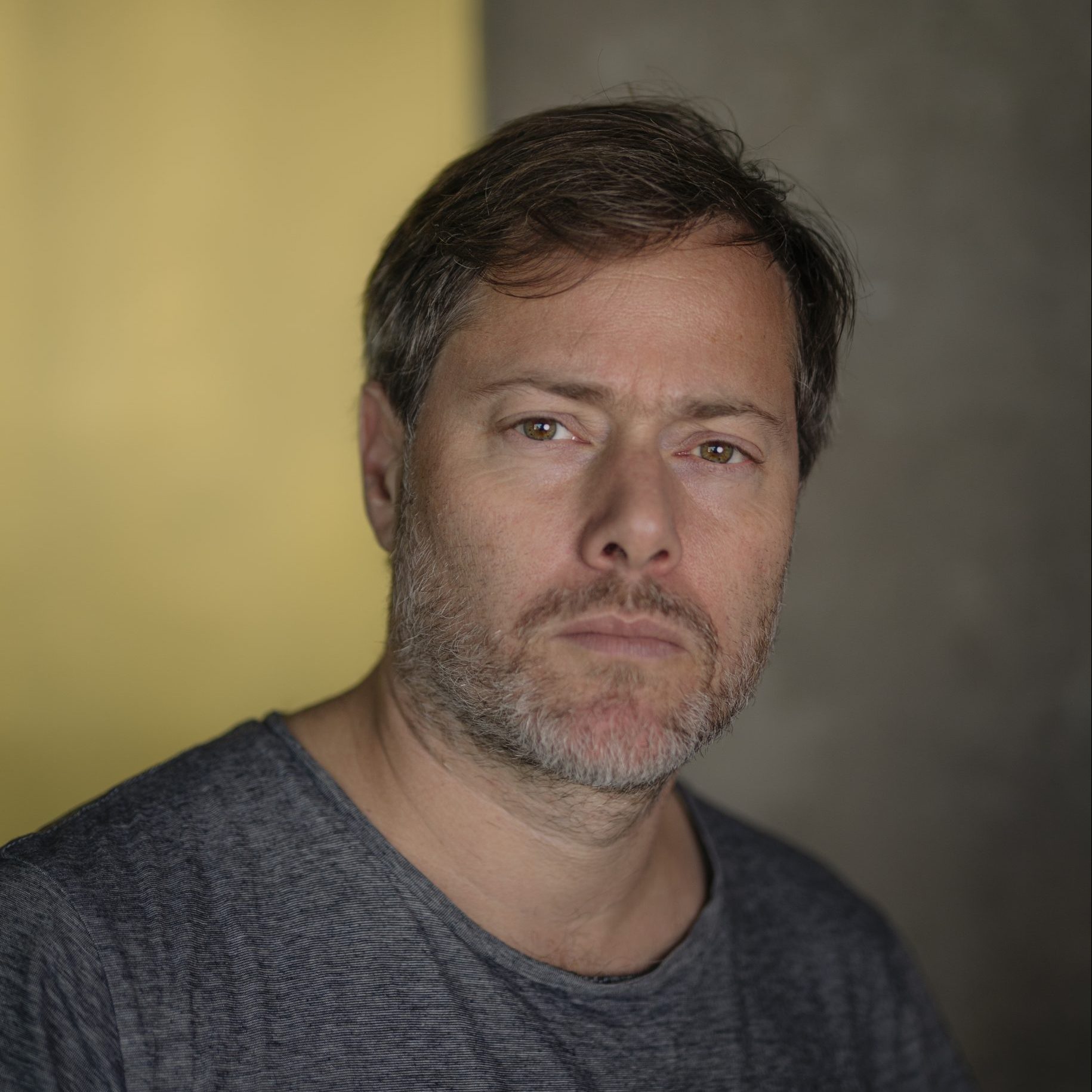
Photo: Marc Driessen
Milo Rau
Born in Bern, Switzerland in 1977, Rau is a director, playwright, film director, journalist, and activist. He founded the International Institute of Political Murder (IIPM) in 2007. The institute conducts thorough research into actual horrific crimes, conflicts, and historic incidents, and recreates them through multimedia works using stage and film, exposing the social structure and political background, denouncing those involved and raising issues for the audience to consider. He has made over fifty works, including Five Easy Pieces (2016) in which a kidnapping and murder of a young girl in the 1990s in Belgium is reconstructed, touching on traumatic issues surrounding Belgium’s former colonization of the Congo, and exposing the secondary victimization inherent in theater. He became artistic director of Belgium’s NTGent in 2018 (until 2024) and staged a trilogy using the guidelines in his Ghent Manifesto, superimposing real-life issues and Greek tragedies. The first was Oreste in Mosul (2019) where The Oresteia by Aeschylus was performed by the people of Mosul, Iraq, which was occupied and destroyed by the extremist group IS. The second was Antigone in the Amazon (2023) which contrasted the situation in the Amazon of the nation cutting down the rainforest to grow soybeans and the resistance of the workers, with Antigone by Sophocles, Medea’s Children (2024) contrasts Euripides’ Medea with the 2007 murder of five children by their mother, recreated and spoken by children. He has also produced films in a similar vein, filming at the locations that the films are based on, including The Congo Tribunal (2015), and The New Gospel (2021). Rau became artistic director of Wiener Festwochen in July 2023. He continues to be an artist in residence at NTGent.(Updated October 2024)
Milo Rau is a documentarist who reveals emerging new realities, depicts horrible incidents that really happened, and visits sites of evil structures, using thorough research and a bold approach in his work. Originally from Switzerland, he is considered one of the most influential and provocative theater artists in Europe today. Bolstering this profound thinking is a phenomenal dynamism and charisma that sees him not only creating unique stage works, but also pursuing transformation of values and organizational structures to the extent that he calls himself a revolutionary.
In 2018, when he became artistic director of one of Belgium’s leading public theaters, the NTGent, Milo Rau announced the Ghent Manifesto,1 which is made up of ten rules putting theater into practice going forward in urban theaters, breaking the unspoken rules that govern European theater like adaptations of classics, established actors, and performing in a single language. Introducing this clear and practical production style resulted in a structural change in consciousness. Then in summer of 2023, he became artistic director of the Wiener Festwochen, a major European international performing arts festival. As part of the festival, he established the Free Republic of Vienna,2 indicating his intentions to fundamentally reform the festival.
At the end of May 2024, not long after the opening of Wiener Festwochen under the Rau administration, we visited him onsite to ask about his intentions.
Interview/text: Natsume Date
English translation: Claire Tanaka
- In 2018 when you became artistic director of NTGent, you declared the Ghent Manifesto, and it attracted a lot of attention for how it raised specific issues about the rigidity of the European theater world. Then, in 2023 you were selected through a public process to become artistic director of Wiener Festwochen. Was this the successful conclusion of a five-year plan on your part?
- I took on the role of artistic director at NTGent in 2017, and after a one-year preparation period, I ran all of the seasons from 2018 to 2023. In 2023 I began preparing for Wiener Festwochen as well, so there was some overlap, but I left my position as artistic director at NTGent two weeks before it began (May 2024). Due to the impact of the COVID-19 pandemic there was a period of little activity, so I actually stayed one year longer, for a total of six years.
It wasn’t exactly a plan from the start, but as a personal opinion, I had always thought an artistic director shouldn’t stay in their post for more than five years. I don’t know about Japan, but in Europe, it’s common for someone to stay on as artistic director for twenty years, and I had always thought that was very strange. In the world overall, when there is a change in the upper management of an organization it’s normally done through a democratic process, but for some reason this is not done in the art world. European theaters are entrenched in a sort of feudal system where many artistic directors and other management don’t leave their positions for twenty years or even until retirement, when they go on to open institutes that are affiliated with the theater, staying there to the very end, and I think that is wrong. There are limits to the vision one person can have, and after five years their ideas run out. I’ll leave the judgement about that to others, but at any rate, staying for a long time in one position is a mistake, from both an artistic perspective and a democratic one.
- What was your reason for moving from a flexible and open-minded public theater in a mid-sized Belgian city to a major international performing arts festival operated by the historic central European metropolis of Vienna?
- My reason was because Vienna needed to be more open, and it had an organizational structure that needed to be changed. Comparing the structure to the simpler and smaller-scale NTGent, Wiener Festwochen is big in every way, and its vast potential is a plus. However, at the same time, in order for change to happen, a large size is a drawback. I decided to transform Europe’s largest crossover festival into something totally different than what it has been. In the past few months, we have made a lot of progress.
- In March 2024 at the press conference for the Wiener Festwochen lineup announcement, there were performances and powerful messages of “Freedom!” “Revolution!” “Republic!” which looked like a very theatrical action. It made me wonder how serious you were…
- I have to show you a video from the opening ceremonies held in front of the city hall on May 23 (shows a video on his smartphone). We established the Free Republic of Vienna, took over the city of Vienna and started a revolution. We made an anthem. Look, here we are singing it. Then we made a flag like this.
-
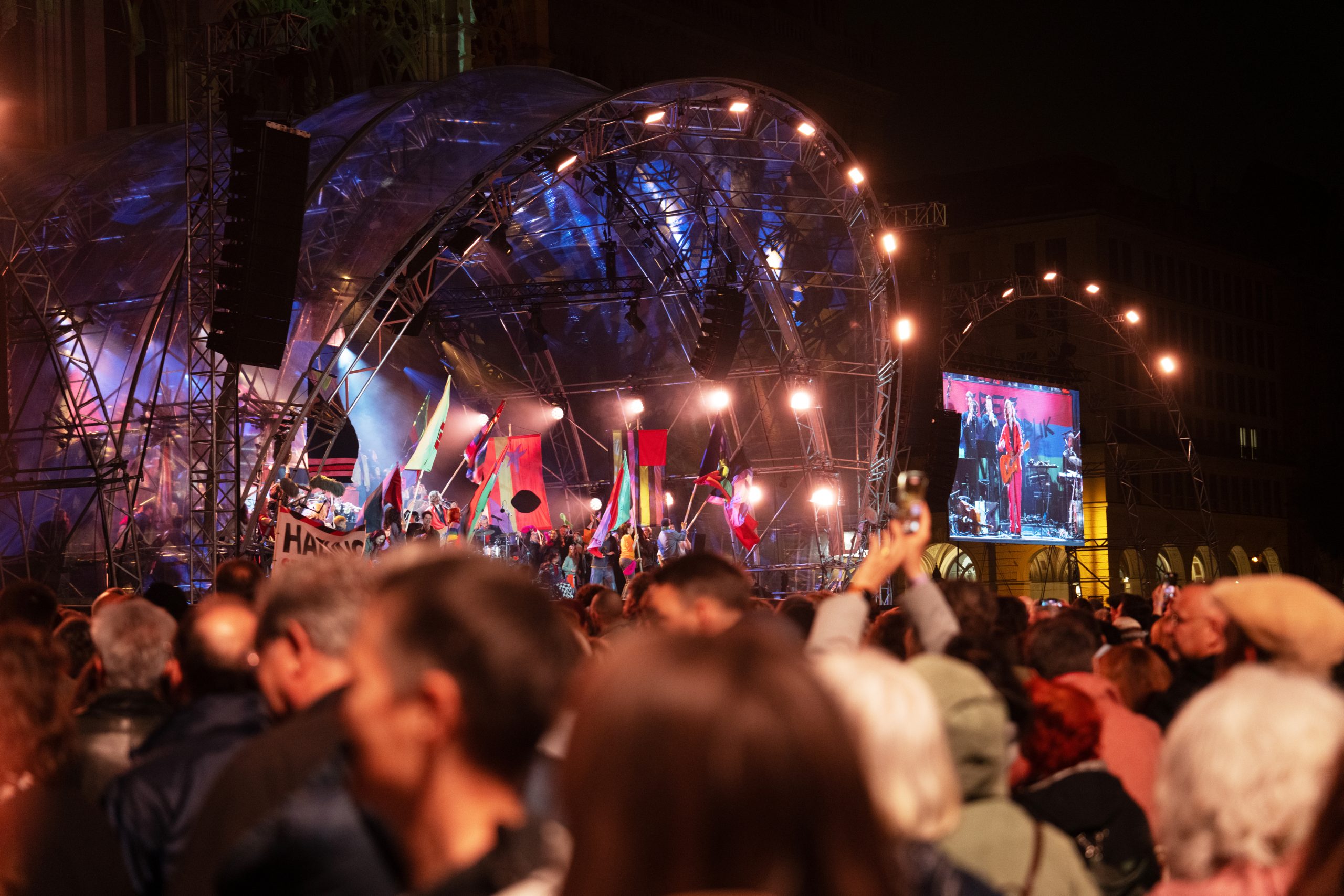
Opening Ceremony for Wiener Festwochen 2024, held in the square in front of Vienna City Hall. On stage, they sing the Vienna Free Republic Anthem. Photo: Franzi Kreis
-
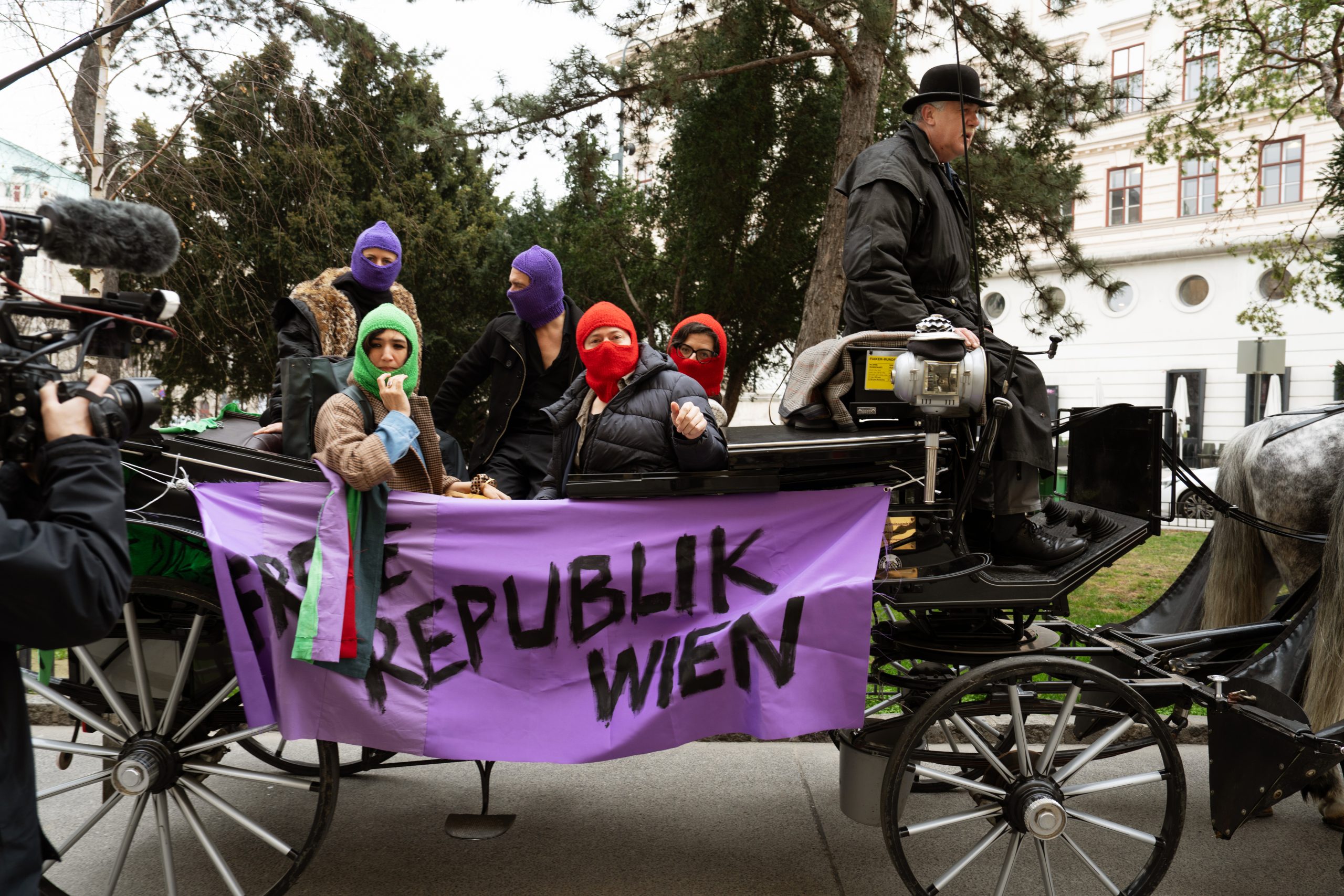
March 2024 Wiener Festwochen press conference where they arrived in a horse-drawn carriage wearing balaclavas in the Republic theme colors (Rau is fourth from the left). Photo: Franzi Kreisrn
- The flag has four colored stripes. Does each color have a meaning?
- They are the colors of four revolutions. Green is the environmental (ecological) revolution, red is the social revolution, black is the anarchist revolution, and purple is the gender revolution. We are starting our initiative with structural reforms. This will naturally take a long time, but the Wiener Festwochen is operated by a Council of the Republic established with 80 people including citizens from all 23 districts of the city and experts in various fields, and they hold deliberations at the Republic House every Tuesday and Wednesday. On the first week of the festival, we held the first Vienna Trial with the Republic of Austria as the defendant. On the last day of the festival, we will make the Wiener Festwochen Vienna Declaration.3
We also established the Academy Second Modernism.4 This is an initiative to provide a platform for female composers, who have far fewer opportunities in comparison to male composers, to present their works within an international network. We’ve already established and run many organizations like this, and none of them are “theatrical” at all. For example, the Vienna Trial last weekend lasted for 15 hours and it was very serious.
-
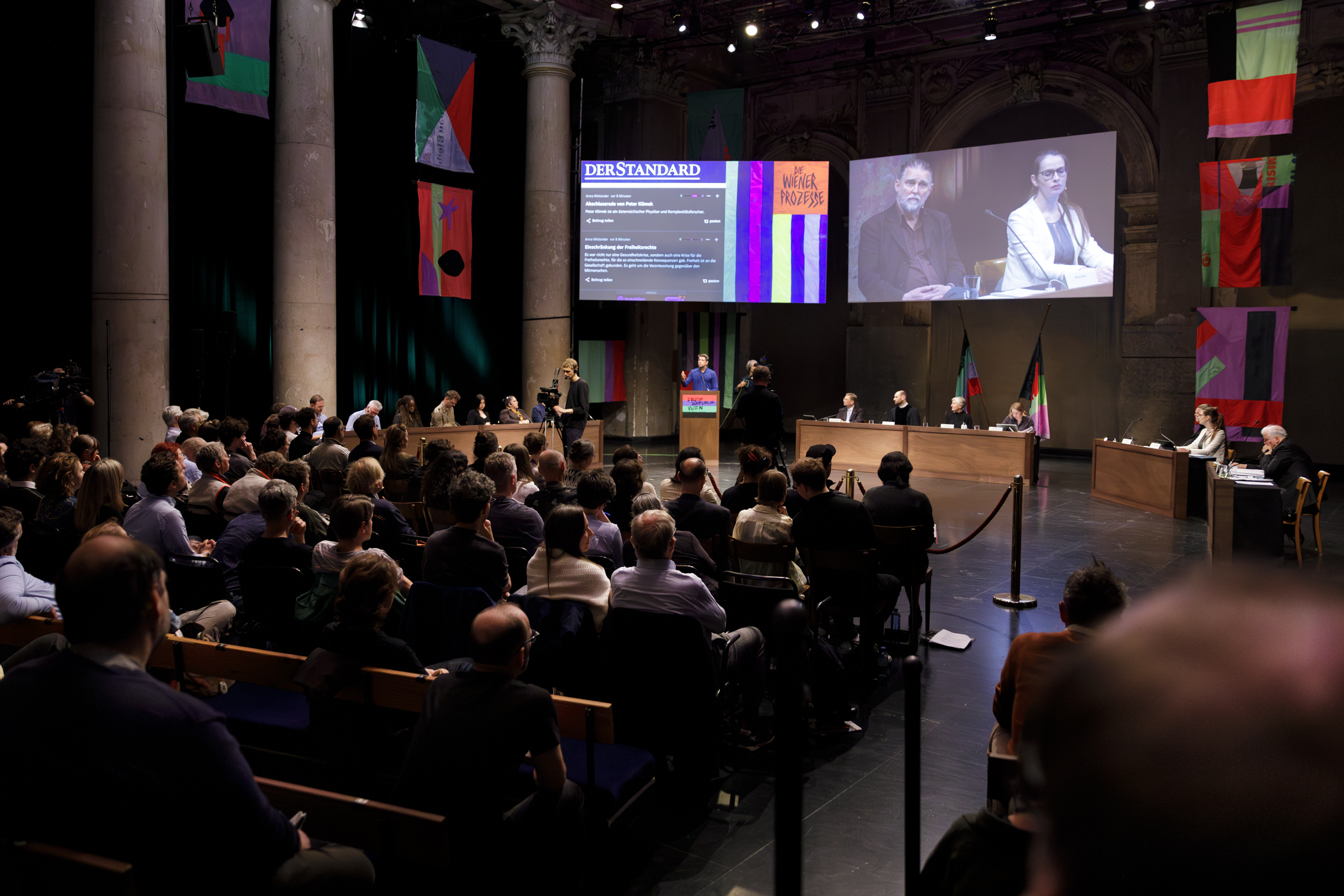
Wiener Festwochen 2024, where Republic of Austria was the defendant at the first Vienna Trial. Photo: Ines Bacher
- In the past, you’ve gathered people involved in the conflict in Congo and held a mock trial with them and made it into a documentary film called The Congo Tribunal, which has become one of your best-known works. This time, it seems like you’re doing something similar by summoning the important figures from Vienna’s ruling class in politics, business, and so on, and holding a trial.
- Yes, there are three trials. The first is a hearing about the Austrian government’s response to the COVID-19 pandemic. The second is about threats to democracy and the far-right party, the Freedom Party of Austria (FPÖ), and the third is about the effectiveness of art.
- Wiener Festwochen is one of the most famous international performing arts festivals. What is the significance of holding such trials during the festival? Is your intent to go beyond simply collecting and showcasing works, and change the fundamental concept of a performing arts festival?
- We citizens should be able to transform the festival and question its social significance and sense of belonging. I believe that a festival is a utopic space that shows that we can change society. As proof, in Ghent we aimed to transform the production structure and attitude at city theaters and demonstrated that a single public theater can produce works under clear conditions (see the Ghent Manifesto). Here in Vienna we are trying to do the same on a larger scale.
- I think that’s a manifestation of the vision outlined in the first article of the Ghent Manifesto, but perhaps you could expand on the declaration made there, “It’s not just about portraying the world anymore. It’s about changing it. The aim is not to depict the real, but to make the representation itself real.”
- The Swiss filmmaker Jean-Luc Godard said that film expression must be changed. He was talking about making a change from the original situation of who makes what sort of movie, and who watches it. Theater is the same. Rather than using theater to tell a story, we need to rethink what, in what method, by whom, and for whom theater as a system and structure is made. There’s no way beauty can be made under terrible conditions, and under beautiful conditions, horror can’t be made. This is what I mean.
-
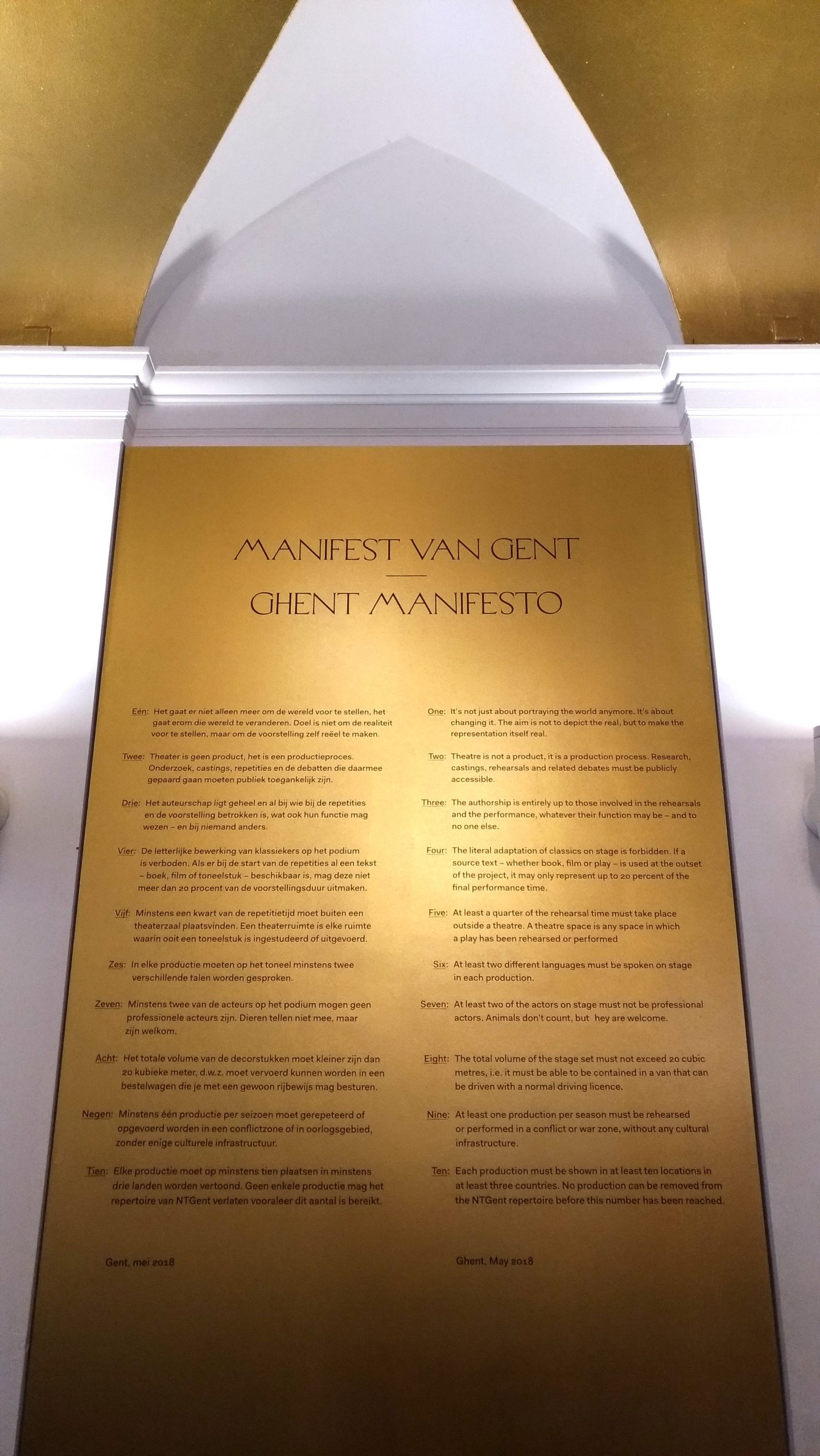
The Ghent Manifesto, posted in the lobby of the Royal Dutch Theatre, home of Belgium’s NTGent.
Photo: Natsume Date
- Are you saying that by establishing a Free Republic and establishing an environment and system for the arts in a democratic way that you can form the foundation for creating beauty?
- Yes, that’s right. It’s not something that I can do right away, but I have five years. Even if one year is used as a preparation period, we’ve already improved so many aspects, and I believe it can be achieved.
- I went to see about eight shows in the lineup at the first Wiener Festwochen under the Milo Rau administration, and I feel like a lot of the works had piercingly strong messages. It seems like you must have had some clear selection criteria.
- There were many different reasons behind our selections so it’s not possible to sum it up into one thing, but we have invited a lot of works that question the theater process of who does theater and why, all in their own ways. As indicated in the first article of the Ghent Manifesto, what’s important isn’t the telling of stories but the theater as institution, and ultimately the works that give a true sense of the intention to change society as an institution is what we are choosing.
- What are your thoughts on the regions from which you invite works to come? As an artist/journalist, you’ve been engaged with Africa and the Middle East with issues relating to the Global South, and with your move to Vienna you have said you intend to shift your gaze to Eastern Europe. What are your thoughts on the fact that there are no participants from Asia this year? Wiener Festwochen has had a special Japan feature before.
- I go to Asia regularly myself and for my works, but it’s true that currently the Wiener Festwochen has very few interactions with Africa, Latin America, and Asia, and that is something we need to strengthen. We will also be sending a dramaturg to Japan. Being able to invite a range of works from far-away places is a wonderful aspect of the festival. The only festivals (around here) with the ability (and budget) to do so are Avignon, Ruhrtriennale, and Wiener Festwochen, and it’s difficult for the others, so in that sense, we need to be proactive. We are considering holding a public hearing with the council of the Free Republic of Vienna to decide how many productions to invite from each continent.
- Does this mean you intend to invite an equal number from each continent?
- Yes, but it wouldn’t necessarily be a percentage by continent. For example, if you compare the overall number of works Wiener Festwochen has invited from Japan with the number of works from Eastern Europe, there have been more from Japan. There are issues like that, as well as other areas to consider like gender and genres. As hosts of the Festwochen, we consider how many we produce ourselves and how many we invite. We are going to consider all the issues and put it in writing, considering the ratio of musicals to plays, the budget for the programming and all that, and codify it in a constitution called the Vienna Declaration. This is going to be like a more detailed Ghent Manifesto.
- Can you tell me more about the ecology element included in your flag colors? Will the need to reduce CO2 leave performers who need to travel by air at a disadvantage?
- In order to promulgate our constitution, we will hold five large hearings of two days for each theme, and in the final week at the fifth hearing, we’ll ask ourselves how to deal with the issues of sustainability and carbon neutrality as an international festival. But this will focus more on how audiences will travel to the festival rather than on artists, for example it would be unacceptable to exclude artists from the Global South just because they have to travel here by air.
During the festival, council members will hold these trials and hearings, and after much deliberation use the results to formulate a Constitution of the Republic, and on the final day of the festival, June 23, we will promulgate the Vienna Declaration. I believe Wiener Festwochen will be the first performing arts festival to have a constitution. (Date of the interview: May 27, 2024)
-
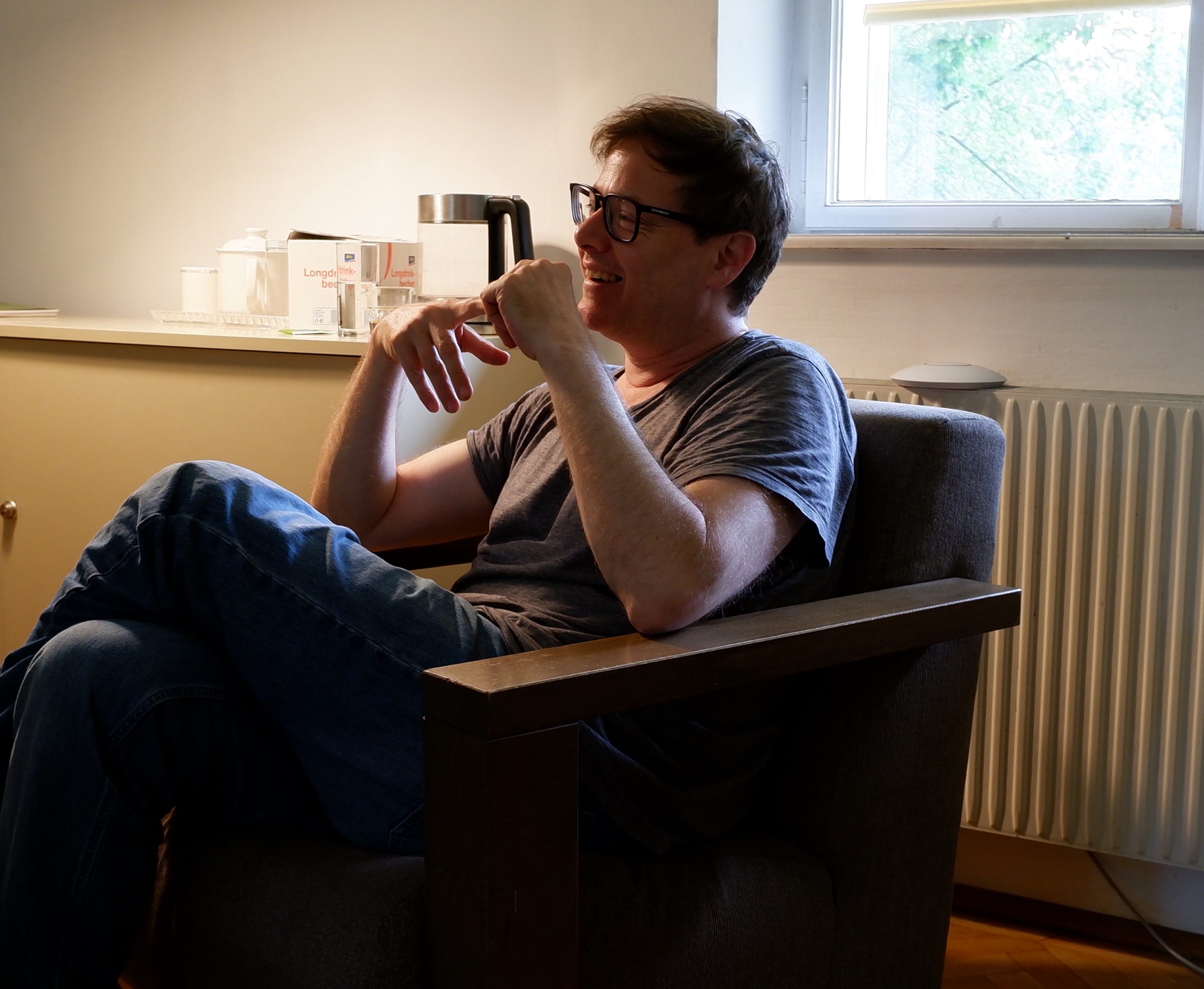
Rau, interviewed at the Wiener Festwochen festival hub “House of the Republic” located inside the Austrian Museum of Folk Life and Folk Art in the Vienna city center. Photo: Miharu Sato
Interpretation: Isao Takashima
[Related Article] Rau delivered a keynote speech at the ITI (International Theatre Institute) World Congress, titled “HOW TO RESIST – or why the only answer to nationalism is global and diverse” in September 2024.
-
The Ghent Manifesto
In 2018, when Milo Rau became artistic director of the NTGent, the municipal theater of Ghent, Belgium’s third largest city, he declared these ten rules for producing works. The style is modeled on Dogme 95, ten rules for making films proposed by a group of Danish filmmakers including Lars von Trier. Aside from article 1 which outlines the basic principle, the rest are technical and specific and also noteworthy for clarifying the problems facing the stagnant European theater world. The entirety of the manifesto is as follows: international-institute.de/en/the-city-theatre-of-the-future-ghent-manifesto/
-
The Free Republic of Vienna
This conceptual organizational system was launched on the opening day of Wiener Festwochen on May 17, 2024 under the art direction of Milo Rau. It includes a unique anthem (hymn), flag, revolutionary institutions (The Vienna Trials, Academy Second Modernism), a festival hub (the House of the Republic), a club, and the Vienna Declaration, which is a constitution created with the Council of the Republic made up of citizens from all districts of the city.
-
Vienna Declaration
During the 2024 Wiener Festwochen (May 17 to June 23), the Free Republic of Vienna Council held a democratic meeting to create these “Guidelines for Future Festivals” which is also the constitution of the Free Republic of Vienna. The entirety of the Vienna Declaration is as follows: https://www.festwochen.at/en/wiener-erklaerung
-
Academy Second Modernism
Vienna was once known as Wiener Moderne, but this first Modernism, with its artistic and philosophical revolution brought about by the likes of Schoenberg, Freud, Klimt and others, was Central European, masculine, and elitist, making it incomplete. The Academy Second Modernism was established to be more global and female-centered. Each year over a period of five years, the Academy Second Modernism will invite ten female composers to Vienna, representing each of Schoenberg’s fifty forgotten female composition students. The goal of the Academy Second Modernism is to bring theaters, opera houses, festivals and so on to significantly raise the percentage of works by female composers in their programs.

